A New Dawn in Europe
Trump’s insistence that Europe stand up for itself is a powerful shot in the arm. It's time to take The Sniff Test.
A New Period of Prosperity
No man can serve two masters: for either he will hate the one, and love the other; or else he will hold to the one, and despise the other. Matthew 6:24.
The Bible warns we cannot pursue material wealth and spiritual well-being.
A CEO of Goldman Sachs once said he was doing God’s work. The firm gets away with a culture of co-heads because its primary purpose is making money. Future leaders learn to cooperate while competing, because their purpose is clear.
Other companies have co-heads as a compromise. Joint leaders result from mergers, to dodge difficult choices and to keep the peace. Often this reflects weak leadership.
Political coalitions of parties and governments are fraught with compromise. Leaders possess the peculiar skill of balancing interests while setting a clear agenda. For much of the post war period, Europe was spared tough decisions on defence and energy security. Blanketed by these luxuries it developed social agendas that it can no longer afford.
Despite the old saying, you cannot keep everyone happy even some of the time. This is why government ebbs and flows in democracies. Today the young seek clarity rather than compromise and Europe must stop being scared of its shadow. The US is forcing its hand and in so doing, unleashing a new period of prosperity.
The Purpose of Government
El Salvador was the murder capital of the western hemisphere. Gangs ran riot and there were 103 killings for every 100,000 people. Today the country has the lowest murder rate across the Americas.
A new president cut the killing by 98%. He introduced digital surveillance, built a vast prison complex and rounded up over 75,000 suspected gang members. International human rights activists united in protest.
A year ago, President Bukele was re-elected with 85% of the popular vote. His approval rating has been rock solid since winning in 2019. Ask Salvadorans whether they want peace or the moral high ground and they choose peace every time.
Projecting from a position of privilege is luxury politics. The role of government is to make people’s lives better and that begins with keeping them safe. Thomas Hobbes made that argument in the aftermath of the English Civil War. It still stands despite four centuries of philosophising about a higher purpose.
Wolves, Deer, Rabbits and Foxes
This month a team from the University of Leeds argued that reintroducing wolves to the Scottish Highlands will help meet the recommendations of the UK Climate Change Committee. The argument is straightforward. Wolves eat deer, deer eat saplings and saplings become trees that sequester carbon. More wolves means less carbon dioxide in the atmosphere.
The research says the right number of wolves is 167, plus or minus 23, to reduce deer populations to fewer than 4 per square kilometre. This will meet 5% of the Committee’s carbon removal target from woodland and make each wolf worth £154,000.
Are wolves the best way to grow trees in the Highlands? Interactive thinking is the second of David Sumpter’s “Four Ways of Thinking”. He uses the example of rabbits and foxes to explain that a steady state outcome is not always possible.
When foxes eat too many rabbits, the rabbit population declines. Then foxes starve and their population declines. Rabbit numbers recover and fox numbers follow. Then the cycle repeats.
Is every policy to be judged on how it contributes to net zero in 2050? If so, is this the primary aim of policy, or a secondary consideration? When serving two masters, one of them will become more important.
Whatever your motivation for wanting wolves in the Highlands, the way to make it happen is to argue it slows climate change. We are teaching a generation of students to use data to create models that predict a particular political outcome.
I can imagine these researchers as the ones to determine the precise number of cameras required to keep cars travelling at 20 mph in London. This will be the optimum speed for your commute, to allow ambulances to respond to emergencies and to reduce particulate matter to the required density to stall climate change. At least that is what the models will show.
One or two researchers may choose a different master and manipulate stock market data instead.
Decades of Weakness
A dollar invested in Europe in January 1970 is worth $101 today, according to Lazy Portfolio ETF. A dollar invested in the US is worth $293. Over the past 30 years the US markets returned three times as much as the European.
Often you can pick a start date to shape what the data tells you. Yet this chart starting in 1981 shows the clear divergence between the valuation of US and German markets since the financial crisis, which is mirrored in rest of Europe including the UK. The title refers to shared tech bubble in 2000, which is not repeating today.
Asset prices depend on the amount invested in them and the largest component is pension savings. The US has a stronger economy and higher wages, which means more money flows into its stock market through pensions. The US has flexible labour laws, making companies more profitable and willing to hire. Protection of workers’ rights may keep Europeans in jobs, but at the cost of slower growth leading to lower pay.
The faster profit growth of US companies attracts money from overseas. UK pension funds in particular have switched to investing there. Yet European markets have had a strong start to 2025 as investors sniff the winds of change.
Researchers produce a lot of theories for why stock markets move. Almost of all of them avoid a crucial argument. While US companies focus on growing profits, European companies are regulated to be architects of social policy.
Sacrificing Democracy for Stability
Last weekend’s election saw the low point in fortunes for Germany’s leading parties.
The same trend is changing the UK.
Parties polling under 5% are barred from the German parliament. Had 15,000 more people voted for the radical BSW then it would have breached the threshold. Then the two main parties would have lacked the numbers to form the next government. The stock market reaction might have been different.
The German system, like many in Europe, uses proportional representation and makes it difficult to throw poor performers from office. The SPD had its worst ever showing but its leaders will sit in the new German cabinet. If democracy is the ability to throw unpopular politicians out, then the German system sacrifices it for stability.
Stability is born of compromise. Each coalition partner brings an agenda and political skill is measured by the ability to coordinate these competing aims. Germany often requires a smaller party to play kingmaker. This used to be the Free Democrats, who insisted on spending discipline, but of late was the Greens with a sustainability agenda. In Germany’s most successful period, a grand coalition of the two leading parties backed Angela Merkel’s leadership and this coalition is possible once more.
The German political psyche bears the twin scars of inflation and the Holocaust. A cautious approach to government spending served the country well and shaped EU policy. The projection and protection of universal rights was central to Germany recovering a sense of itself. Born into strength, young people no longer bear the scars.
It is the young who are losing faith in the centre, but they are divided. Women favour parties of the left and the former communists in particular. Young men lean right and prefer the nationalists.
There is demand to loosen the government purse strings. There is resistance to unbridled immigration. There is a desire for leadership in place of compromise. There may be no choice but to deliver.
Make Europe Great Again
Germany thrived with the flow of cheap Russian gas under the umbrella of US protection. Relieved of the two biggest burdens facing most governments, it prioritised other policies. These reflect its peculiar history and political system.
The protection of personal privacy conflicts with a desire to suppress hate speech. The reliance on fossil fuels conflicts with sustainability. Economic growth papers over these divisions but stalled in the last two years. The war in Ukraine drove up energy prices and snapped US patience with rich countries refusing to honour their commitments to NATO.
Obama began the US pivot to Asia, which means moving men and money. This is now an urgent priority. The new government believes ESG and DEI sap economic strength, views privacy laws as constraints on trade, and despairs of the European impulse to regulate rather than innovate.
Trump is forcing Europe to prioritise. Paying for defence requires a strong economy and profitable companies. Policies such as sustainability and diversity that act as a tax on business may be curtailed.
There is a new dawn in Europe. Stock markets rally led by defence contractors and manufacturing and chemicals companies. The necessity of a strong economy is once more the master in Germany and the rest of Europe will follow.
Trump’s legacy may be to Make Europe Great Again. For this to happen, its citizens must understand that subsidies and security blankets smother innovation, opportunity and economic strength.


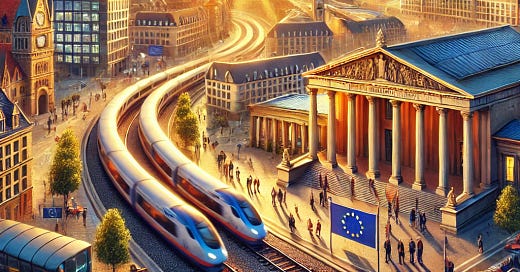



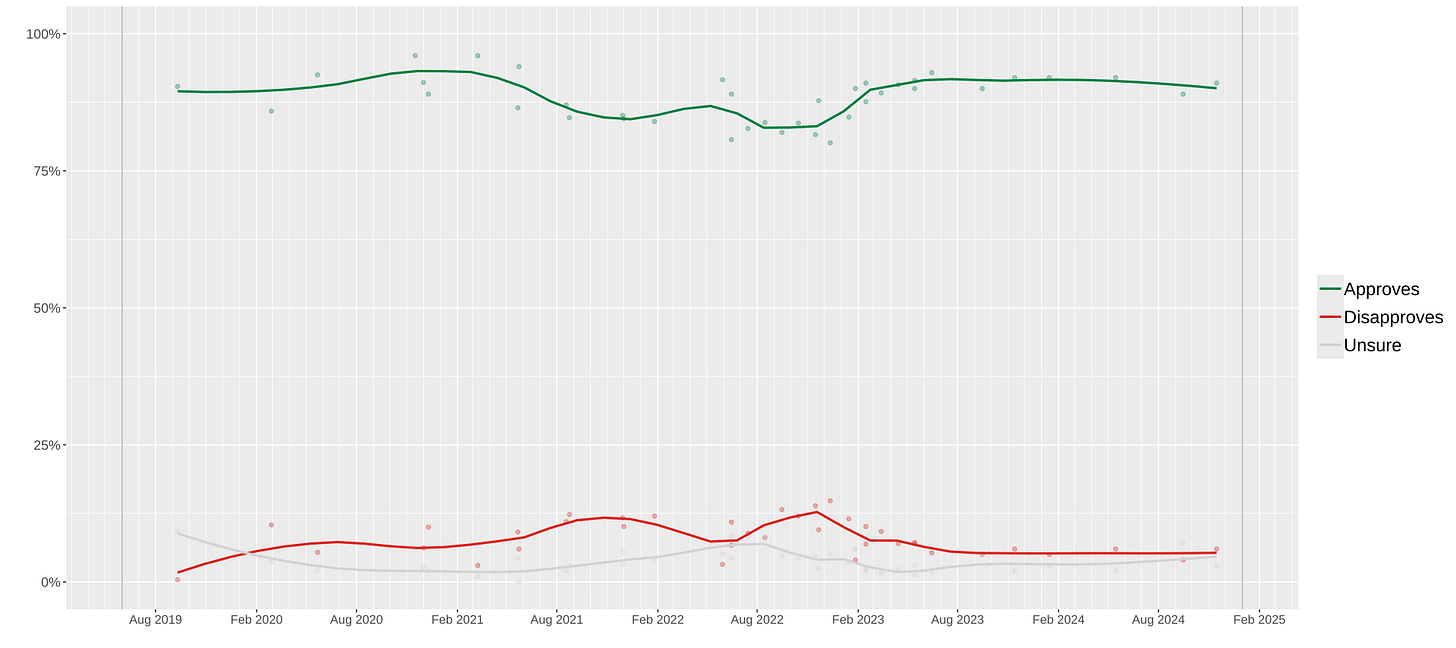
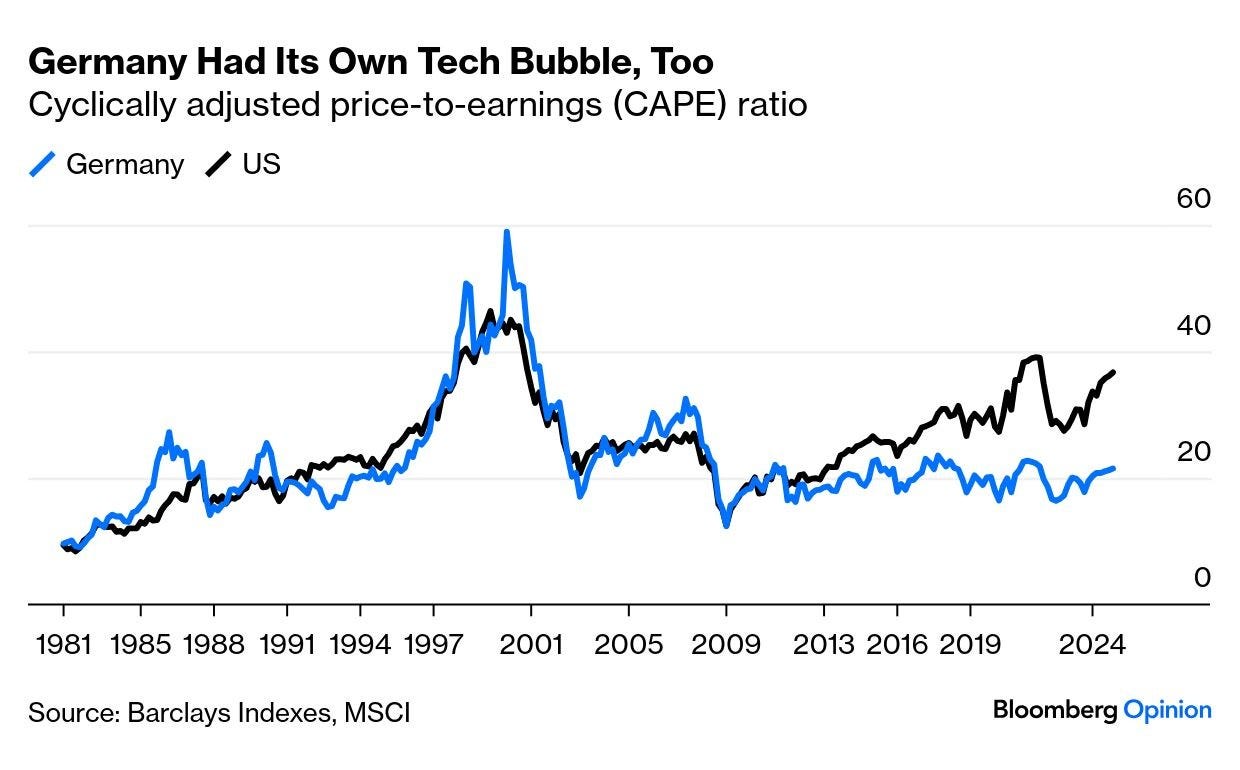
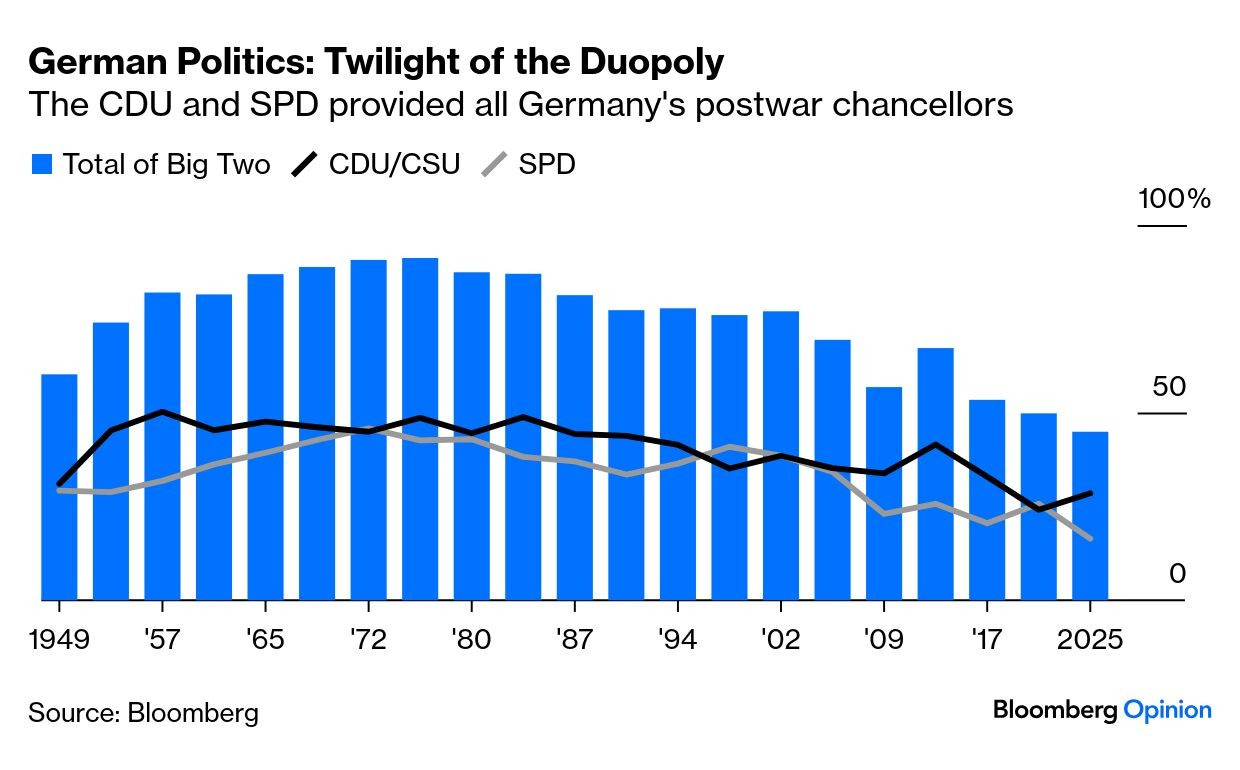
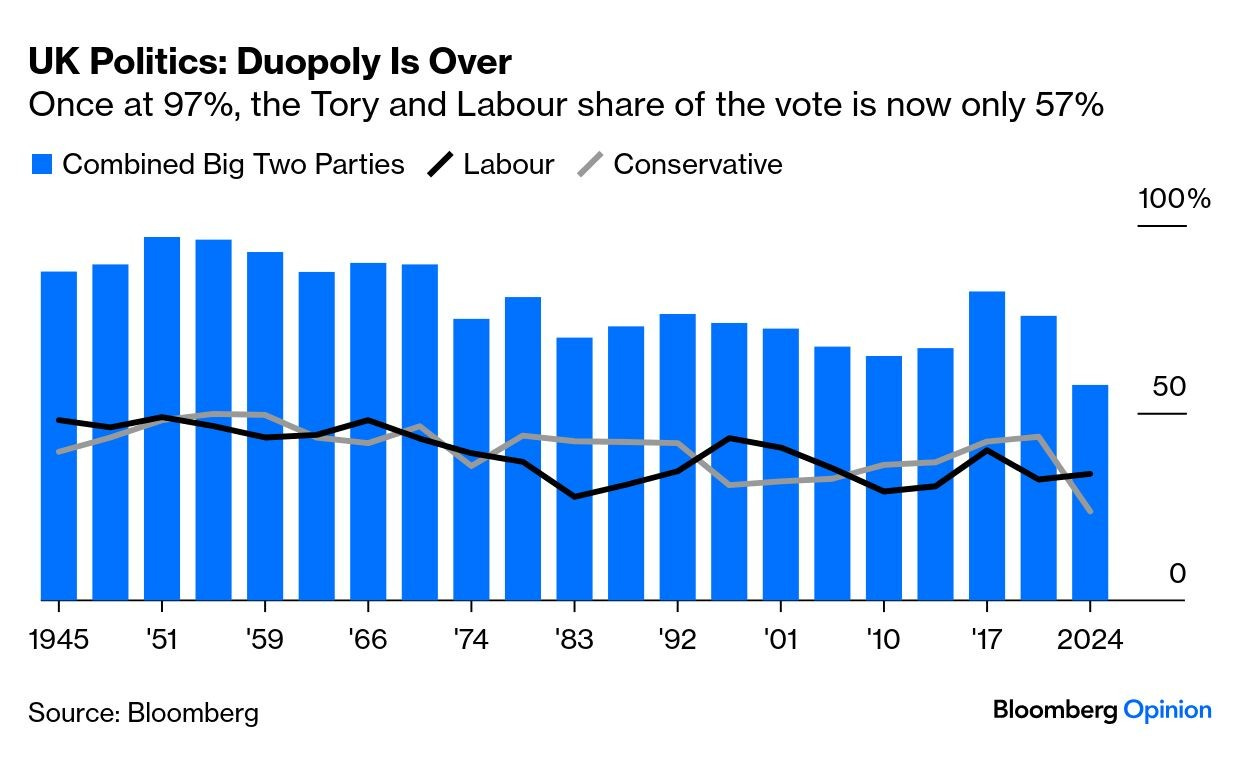
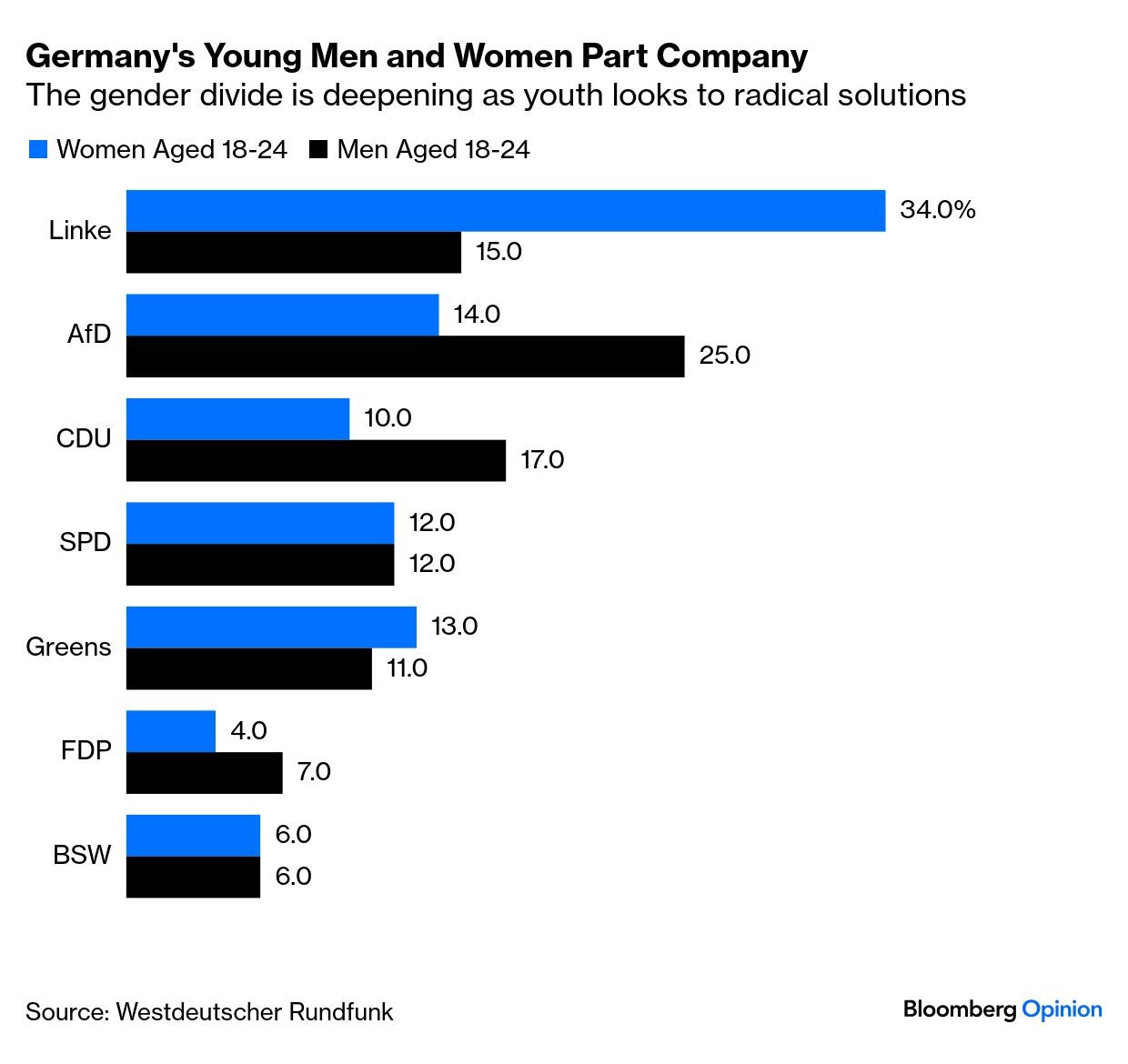
An excellent article which overlaps seemlessley with 'Your Role in Democracy'
A recent podcast made the interesting point that if you view a map of the world with the Pacific Ocean at the centre rather than Europe, then the logical geo political alliance becomes glaringly obvious.
Indeed that is why the British empire with Europe, at the peak of its maritime power, sought the shipping lanes of the North West Passage and via the direction of Halford Mackinder, sought to ensure that the United States and Russia never became allies.
It’s been a valiant fight, but this looks set to change and if the new trilateral arrangement includes China, Britain and Europe will be forced to change too !
Unfortunately though, there is the not insignficant hurdle to clear of the British and European governing class. Doesn't really matter whether it’s the technocracy or the façade of democracy ! There is a profound lack of vision and intellect amongst both to build alongside the new world power structure, and this is why they continue to not only regulate their societies into ruin, but are concomitantly fighting tooth and nail to keep the old order relevant, which is putting them increasingly at odds with the people whose interests they are meant to be serving
I think the Trump administration will seek to achieve whatever it can before the 2026 Midterms and I think the Europeans and British are hoping to wait it out until then
I don't think they have the time to do that though. The EU has already directly intervened to change the Romanian election result to its liking As you highlight, Germany will be governed by the 'coalition of losers', France and Austria are stretching every legal avenue to keep the increasingly false consensus in office and Italy is subtly shifting to a more pro Trump position
The question is who breaks rank first to call a halt on this European journey to penury ?